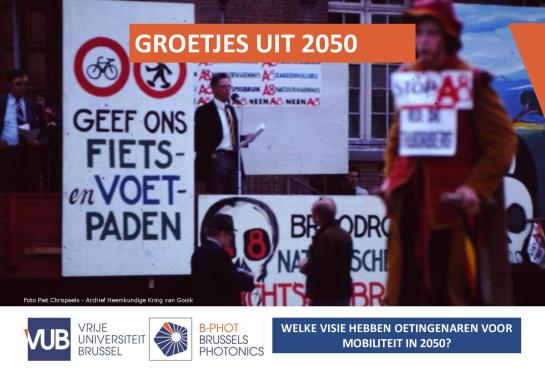
In the project Oetingen2050, the MOBI urban mobility team is developing future scenarios for Oetingen, a rural village in the Flemish Pajottenland. The project aims at developing a mobility vision for the village for the year 2050, as well as alternative scenarios based on disruptions.
Visions and scenarios can help governments make the right policy decisions by defining a desired future state. However, these futures are often a linear continuation of a current situation, and they therefore don’t always hold up to unforeseen events. For this reason, Oetingen2050 incorporates disruptions into the collaborative visioning exercise. Disruptions are low probability but high impact events, such as the ongoing COVID-19 pandemic. As the future is not a linear result of the past, it is important to incorporate these disruptions in decision making to not be taken by surprise if they happen.
To come to a vision of mobility for 2050, the project takes the opinion of as many Oetingen citizens into account as possible. Citizens can submit their visions either through the project website, or through a postcard they received in their mailboxes. They are then invited for interviews to detail their vision further. During these interviews, the citizens’ visions are also subjected to different disruptions, to see how the visions change in light of unexpected events.
The project actively involves children because their visions have, in the past, been found to be more outside-the-box and more creative than visions of adults. Up until a little more than a year ago, we all thought that life could not be as disrupted by a global disease as it has been, so it is interesting to incorporate ideas that might sound a bit crazy into planning processes. And, after all, it is the kids of today who will be the adults of tomorrow, so it is important their visions be heard as well.
The project started in November 2020 and will run until January 2022. For more information on the project, take a look at the project website or contact Jesse Pappers.
